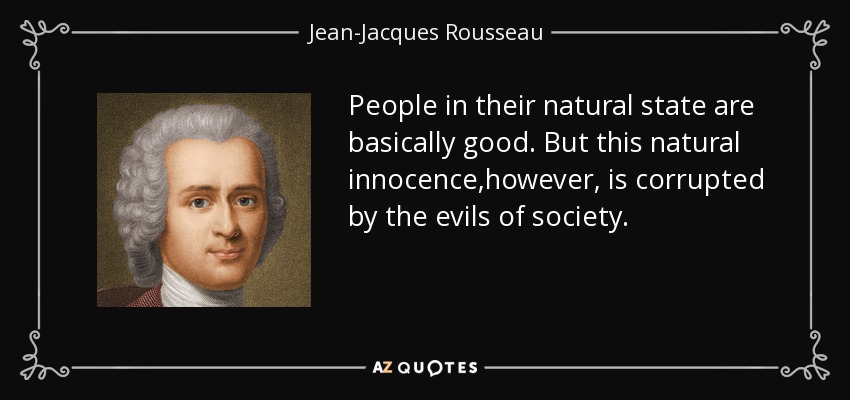For the Roman Catholic Church,
the acceptance of the goodness of people has been a disaster. It is, in part, responsible for the massive decline in private confession and for the great divide between those who feelings over the truth of Scripture. I believe that this is also responsible for massive decline in church attendance among Roman Catholics (as well as other
Christians) -- after all, if you are basically good at heart, what is the urgency or need for a God who rescues you? When Christians replace human sinfulness with basic
human goodness, the premise of Christianity is destroyed. If we do not need rescuing from our sins, why would we need a Savior? The solution for those who insist upon the basic goodness of humanity is that the job of the Church and the Savior is to help people come to terms with and live in accordance with their desires. When this happens, the whole rationale
for Christianity—sinners in need of redemption is destroyed and what you have left is an individualistic morality whose job is to affirm the desire of the moment. It is no less damaging to orthodox Lutheranism as well. In fact, it is the rationale for those who have opened the door to behaviors that were once declared sinful and gender identity with its notion that the body and the gender probably have nothing in common. Where you find a church body ready to ditch the traditional teaching of Scripture on marriage, sexual desire, and gender identity, you probably have a church body that has exchanged the truth of original sin for the pleasant lie that people are basically good and life screws them up later.
While Rousseau is certainly responsible for thrusting this idea into the mainstream of Christian thought, the churches were quick to adopt this popular idea. When that happened, self-actualization rather than holiness became the goal and purpose of the Church's existence. In the wake of this subjective and self-centered understanding of truth and life, Christianity was already on the path to becoming merely a therapeutic deism where people run for refuge from those who would challenge their desires. Truth is only as big or deep as the individual and counseling suddenly becomes the purpose for the pastoral ministry as well as the primary program for the Church. The theologian and exegete gives place to the therapist, psychologist, and sociologist to define what God is, who we are, and how the two intersect. The gospel for this aberration is "Judge not" and the presumption is that if we affirm others with their idiosyncrasies, they will not question and will affirm ours. The psychology of this “feel-good-about-yourself” religion became the enlightened and advanced form of Christianity -- the modern form.
I see people wince when in the baptismal rite, we confess that the child being brought to the font is under the power of the devil until Christ redeems him. We are destroyed by our sentimental view of the child because if that child is sinful, we are. And that we cannot allow. So, what has to go is the doctrine of original sin and that is replaced by the notion that people are basically good, that society and experience forms the sinner and not the desires of the heart. The problem with ditching original sin, is that it ditches the teaching of the Scripture and the atonement. But, if that is the cost of holding on to a pleasant notion, many seem ready to pay that price. One more neat thing about this idea is that it posits the blame for sin away from the individual and places it on the society at large.

No comments:
Post a Comment